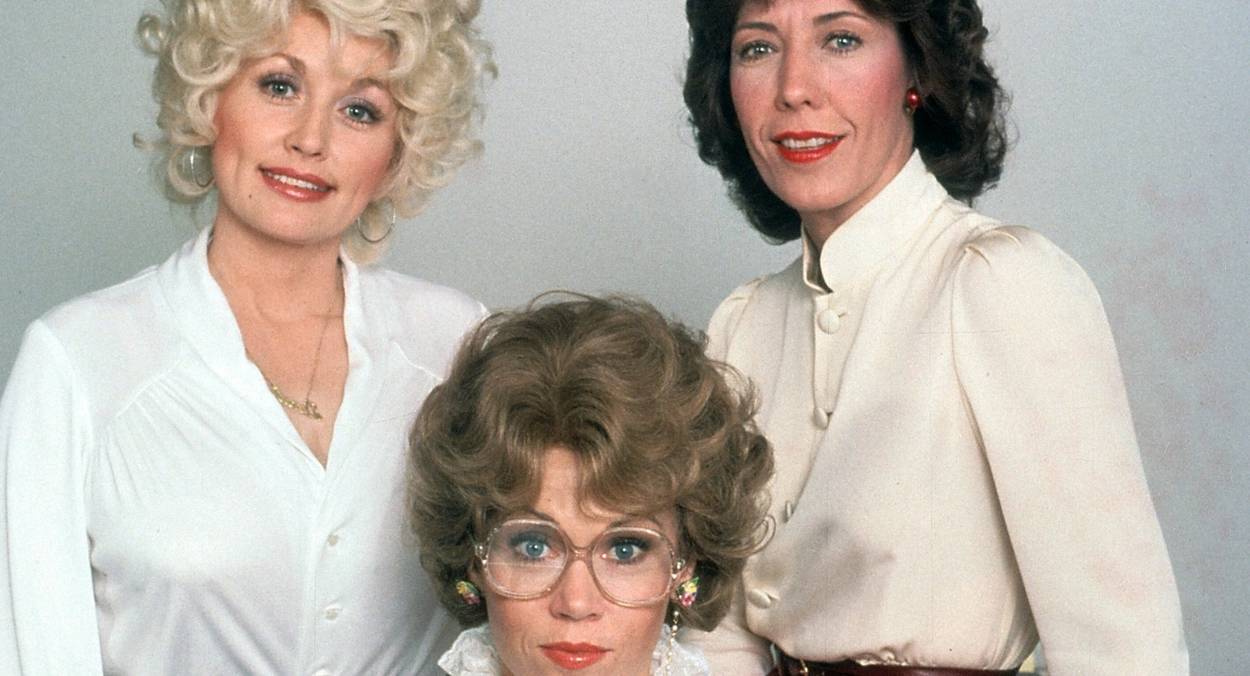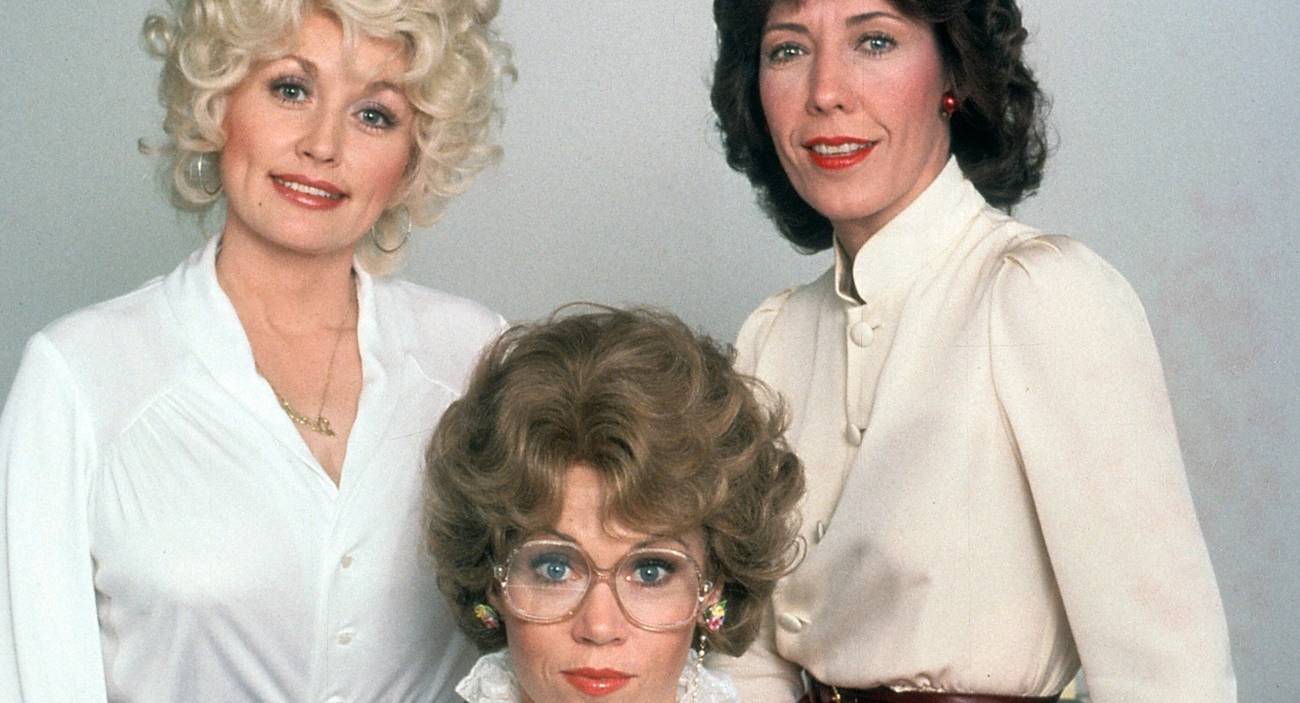A Philistine Prophecy
Patricia Resnick wrote ‘9 to 5’ almost 40 years ago. A talk about Hollywood, sexual harassment and how it feels to be that prescient.




Alana Newhouse: Where did you grow up?
Patricia Resnick: I grew up in Miami Beach, Florida.
What was it like then?
For me, it was sort of like hell—with less interesting people and more humidity. I always felt like I didn’t really fit in there. The rest of my family was all in New York and I felt like I had been exiled to Miami Beach for some reason. I loved New York. Miami Beach back then was very different than it is now. It was almost like a small town—without the virtues of a small town, I guess.
Did you move to L.A. straight from there?
Yes. I came to L.A. to do my last two years of college and then went right to work in the business.
The original idea for the movie was Jane Fonda’s. Did she approach you directly? How did you come to write it?
I read—I think in Variety—that Jane Fonda wanted to make a movie about secretaries with Lily Tomlin and Dolly Parton. Lily had given me my first writing job. I was working for Robert Altman and I really wanted to write. I had met her on a film he was producing called The Late Show. She asked me to write a couple of pieces for her first Broadway show. Dolly I also knew a little bit because I had written a piece for her and Cher for a television special that Cher was doing. So when I saw Jane’s idea, I thought, “Oh, I’ve got to go after that.”
I called my agent. Jane and I were both at the same agency at the time and asked if there was a writer. There wasn’t. They put me up for the job and she read some material of mine and liked it. I went and met with her. She had a lot of things she wanted to say about clerical workers. She had a lot of statistics, but she also definitely wanted it to be a comedy. I went off to try to come up with a story, and we just proceeded from there.
And was it always a dark comedy? Did you envision from the start the characters’ impulse to seek revenge against their awful boss?
I wanted them to actually try to kill him! In funny ways. The only bump the production ever really had was we were having trouble finding a director in time. We had a very small window when all three of the women were available. The man who ended up directing it, Colin Higgins, was also a writer. Instead of them actually trying to kill Coleman’s character, he made them into fantasies and lightened it.
The last two months have had to be weird for you. In a sense, one could argue that you’re seeing the energy of the movie almost come to life. I’m just curious about what it feels like to have 37 years ago written something that now feels like it captures a real-life moment—exactly.
It helps to know even more of the backstory. The idea of having three secretaries with the worst boss in the world who they wanted to kill was my idea. Then I realized that I hadn’t really ever worked in an office. I’d worked as a waitress for a couple years and had other sorts of jobs, but I had not worked in an office. I wanted to go do some research. I ended up going to the insurance company—a big insurance company that insured Fox, which was our studio. I went for about two weeks to this insurance company downtown. A lot of what’s in the movie, especially the stuff having to do with sexual harassment, was just things that I observed working at this one company.
Also, separately I went and did a typing test. I was trying to see if I could get a job as a secretary. Even though I was a writer, my typing skills were not very good, and the guy running the recruitment business told whoever had gotten me the appointment there—I forget who it was—that he wouldn’t hire me as a secretary, but he would be happy to sleep with me.
So much of that was just from what I was observing.
It’s basically a documentary!
The thing that’s really sad is that I think for many years, people felt, particularly in the ’90s and early 2000s, “Oh, well that’s been handled. That’s gone away.” Of course it hasn’t gone away. It just became less blatant.
In 2009, when we were about to open the musical of 9 to 5 on Broadway, virtually every male journalist who interviewed me before the show opened asked how contemporary audiences were going to be able to relate to it—because, they said, all those problems had already been handled.
Right.
I’m really sad that this many years later, things haven’t changed more. It’s not just in the realm of harassment. That was the storyline of Doralee, Dolly Parton’s character, but in other ways as well. So many of the things that the movie talked about, from daycare to flexible hours to equal pay for equal work, still have not come about.
On the good side, I’m really happy that so much of this is coming out and that finally, at least for some of these men, there are consequences for their actions.
What do you think about the argument being made in some corners now that we are lumping together men who’ve been inappropriate with actual predators, and should be wary of it?
First of all, I absolutely agree that there’s a real difference between a guy who makes a one-off comment and, say, a showrunner on a television show who daily in the writers room is sexually harassing people or continually making inappropriate comments about women to somebody who is groping women to somebody who is masturbating in front of women to someone who is raping women. One woman accuses a man of an off-colored remark or a joke, I don’t like it. It’s poor judgment, but do I think their lives should be completely destroyed? No.
But when pendulums swing, they tend to swing… well, let’s just say the French Revolution was probably not the best response to the horrible things that were going on, but it got the job done and things swung back.
Because, come on, let’s be honest: It’s not going to burn down. The patriarchy is the culture of the world, it’s not just America. It’s so strongly tilted towards the male. The most blowback has been against men with multiple, multiple accusers. A lot of these men, it was well-known in the industry for years. I mean Louis C.K., who I’m a big fan of a lot of his work, I heard these stories about him… I don’t know, maybe starting five years ago. I was talking to my then-teenage son, who also really liked him and I said, “Oh my god. I heard the worst thing about Louis C.K.” He said, “Oh, you mean that he takes his dick out in front of female comedians?”
The truth is that, unfortunately, I actually think this—like most things—will blow over. My real fear is not that anything is going to burn down. My real fear is that a lot of men are going to become like Mike Pence and going to just say, “You know what? I’m not taking meetings alone with women. I don’t want women in my writer’s room. I don’t want to have to watch everything that comes out of my mouth.” Anywhere they can, they’re going to hire even fewer women than they were before.
Last question for you. You’re a person who wrote a movie that presciently illuminated a conversation that it took the rest of us decades to have. What movie would you make right now if I told you that I was going to give you all resources possible? What issue currently in pop culture, in society, in our civic discourse, do you want to see people focusing on?
Wow. If I were a different writer than I am, I would absolutely do something about climate change, because I believe that’s what’s going to kill us all. As far as the issues that are more in my arena, I think it’s probably time for a sequel to 9 to 5 dealing with what’s going on now. You know, I feel like America is like the dog in Up, who gets distracted constantly by the squirrel. There will be a new cycle soon and something else will catch everyone’s interest. I hope that’s not true, but I think it probably is.
Alana Newhouse is the editor-in-chief of Tablet Magazine.